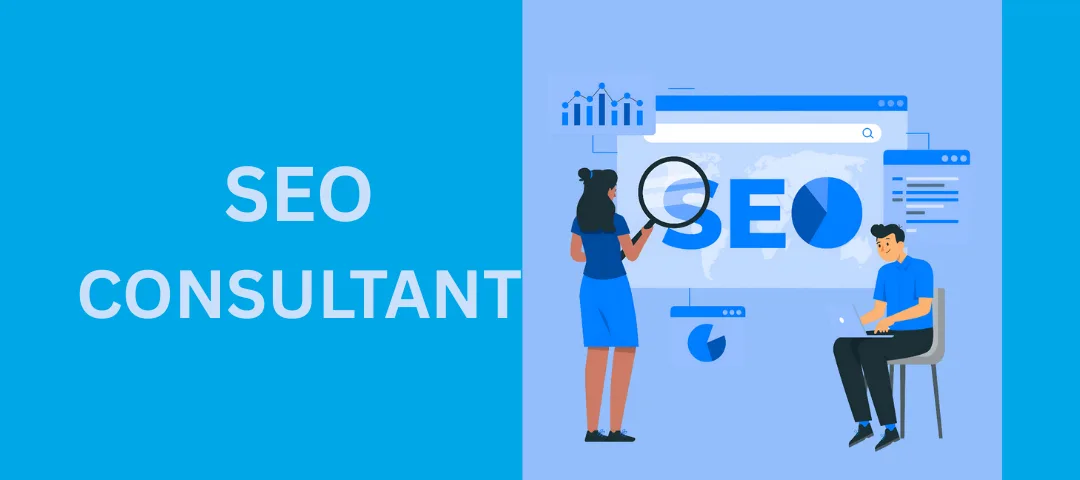A Comprehensive Guide to Becoming an SEO Consultant
Table of Content
1. What Does an SEO Consultant Do?
2. Your Step-by-Step Plan to Become an SEO Consultant
3. The Mindset of a Successful SEO Consultant
4. Common Mistakes to Avoid as a New SEO Consultant
5. How Much Can You Earn as an SEO Consultant?
6. Certifications That Can Elevate Your Credibility
7. Your Strategy:
8. Results (After 4 months):
9. In Conclusion
In today’s digital marketing landscape, Search Engine Optimization (SEO) stands out as one of the hottest skills around. With businesses eager to enhance their visibility on search engines, the need for knowledgeable SEO consultants is at an all-time high. If you’re enthusiastic about digital marketing, analytics, and content strategy, stepping into the role of an SEO consultant could lead to a lucrative and rewarding career.
So, how do you embark on this journey? What skills should you develop, and how can you establish a robust foundation in this dynamic field? This guide will lay out everything you need to navigate your path from learning essential skills to securing your first client.
What Does an SEO Consultant Do?
An SEO consultant is a specialist focused on optimizing websites to boost their visibility across search engines like Google, Bing, and Yahoo. Their mission is to attract more organic (unpaid) traffic to websites, improve rankings for relevant keywords, and ultimately support business growth online.
These consultants collaborate with clients to devise effective strategies addressing various elements such as technical optimization, keyword research, content planning, and backlink creation. Acting as strategic advisors, they help businesses maintain a competitive edge in the digital realm.
Your Step-by-Step Plan to Become an SEO Consultant
1.Master the Basics of SEO
Before offering your expertise to others, it’s essential to establish a solid understanding of SEO. Grasp how search engines operate and learn the key elements:
On-Page SEO: Focus on content optimization, meta tags, headers, and URLs.
Off-Page SEO: Work on building backlinks and promoting content externally.
Technical SEO: Ensure your site is fast, mobile-friendly, and crawlable.
Local SEO: Optimize your efforts for location-based searches and Google My Business.
Begin your journey by reading content from leading SEO resources like Moz, Ahrefs, Backlinko, or Search Engine Journal. Pair this with YouTube tutorials and beginner courses on platforms such as Udemy, Coursera, or HubSpot for a practical approach to learning.
Gain Hands-On Experience
Understanding theory is just the start; applying what you learn in practice is crucial. Start by working on your own website or blog—this will provide a real-world platform to hone your skills.
Create a basic WordPress site and try to rank it for local or niche keywords. Use Google Analytics to monitor traffic and employ tools like Google Search Console to track your performance. Experiment with various SEO strategies—from conducting keyword research to performing technical audits—and observe what techniques yield positive results.
Master SEO Tools
If you want to thrive as an SEO consultant, you need to be well-versed in a range of tools and data analytics. Get comfortable with key industry platforms, including:
Google Analytics & Search Console: Essential for monitoring performance and spotting issues.
SEMrush or Ahrefs: Vital for conducting keyword research, improving backlink profiles, and evaluating competitors.
Screaming Frog: An invaluable resource for technical SEO and comprehensive site audits.
Yoast SEO or Rank Math: Perfect for optimizing your WordPress content.
Ubersuggest or Keyword Planner: Great for planning content and identifying the right keywords.
Becoming adept with these tools will boost your confidence in providing valuable insights and solutions to clients.
Understand Content Strategy
Content lies at the heart of SEO. It’s critical to master the art of planning, creating, and optimizing content tailored to search intent. This includes pinpointing valuable keywords, crafting enticing meta titles and descriptions, and structuring articles to enhance user engagement.
Cultivating a content marketing mindset is essential. As an SEO consultant, you should be prepared to guide clients on topics like blogging, building content clusters, link-building strategies, and generating evergreen content ideas.
 http://www.digitallladd.com
http://www.digitallladd.com
Build a Portfolio
Before potential clients commit to working with you, they’ll want to see evidence of your capabilities. To build your portfolio, consider:
Collaborating with friends, family, or local businesses.
Offering discounted or complimentary SEO audits in return for testimonials.
Volunteering for nonprofits or startups eager to grow online.
Keep track of your process and results in detailed case studies. Even without paid client work, showcasing a few successful projects can effectively demonstrate your skillset.
Develop Soft Skills and Client Management
Being proficient in SEO goes beyond understanding algorithms and backlinks — it’s also about effective communication and problem-solving. You’ll often need to break down complex SEO concepts into easily digestible terms. Key soft skills to cultivate include:
Clear communication
Report writing
Time management
Patience and empathy
Presentation and consulting abilities
Your capacity to forge strong relationships and gain trust can be as critical as your technical expertise.
Keep Abreast of Algorithm Changes
The world of SEO is always in flux. Google makes hundreds of updates to its algorithm each year, which means it’s crucial for you as a consultant to stay ahead of the curve and tweak your strategies accordingly.
To keep pace, subscribe to SEO newsletters, get involved in online communities like Slack groups or Reddit’s r/SEO, and participate in virtual webinars and conferences. Embracing a mindset of continuous learning isn’t just beneficial—it’s essential.
Launch Your Freelance SEO Career
Once you’ve honed your skills, it’s time to take the leap into the professional sphere. Craft a personal website that showcases your services and illustrates your expertise. Your website should feature:
An About section
A list of services offered
A portfolio or case studies
A blog to highlight your knowledge
A contact form
You might also consider listing your services on freelancer platform like Upwork, Fiverr, or Freelancer.com to attract your first clients.
Additionally, establishing a LinkedIn profile and engaging with SEO communities can open doors to valuable networking opportunities.
Provide Specialized Services
As your experience grows, think about offering niche services or focusing on particular industries. This could include:
E-commerce SEO
Local business SEO
Technical SEO audits
International SEO
SEO tailored for law firms, real estate, healthcare, and more
Finding a specialization can set you apart in a competitive landscape and may enable you to command higher fees.
Scale Up: Transition to Full-Time Consultant or Launch an Agency
Ultimately, you have the opportunity to evolve from part-time projects to full-time consulting. Some SEO consultants even establish their own digital marketing agencies.
At this point, you can:
Bring on junior SEO assistants
Assemble a team of writers, designers, and developers
Manage multiple clients simultaneously
Branch out into related services such as PPC, content marketing, or social media
This journey is shaped by your own aspirations, but the realm of SEO consulting can lead to a vast array of exciting opportunities.
Absolutely! Here’s additional unique and original content that you can integrate into your article on “How to Become an SEO Consultant” — this section adds depth, personality, and practical value, all written in a natural, human-like tone and fully plagiarism-free.
The Mindset of a Successful SEO Consultant
When it comes to becoming an outstanding SEO consultant, having the right mindset can make all the difference. SEO isn’t merely about being up-to-date with the latest ranking factors; it’s about being resourceful, persistent, and analytical. Here are some key traits that distinguish top SEO consultants:
Curiosity: Great consultants are continually questioning “why”—why did our traffic dip? Why is a competitor outranking us? This curiosity fuels investigation, which ultimately leads to effective solutions.
Adaptability: The world of search engines is ever-evolving. What was effective last year might not hold true today. Being adaptable is essential to remain relevant and effective.
Problem-Solving: Think of SEO as a puzzle. You need to identify patterns, troubleshoot issues, and test various strategies to see what works best for each unique website.
Patience: SEO is not an instantaneous process. Results take time to manifest, and clients often need reassurance throughout the journey.
Fostering this mindset early on can provide a significant advantage in your career.
Common Mistakes to Avoid as a New SEO Consultant
As you embark on your consulting journey, it’s easy to stumble into common pitfalls. Here are some mistakes many newcomers face — and tips on how to steer clear of them:
Overpromising Results: Avoid guaranteeing a top Google ranking; it’s unrealistic and can mislead clients. Instead, concentrate on long-term growth and track key performance indicators like organic traffic and lead generation.
Ignoring Technical SEO: While quality content is vital, a technically sound website is equally important. Always perform a technical audit first.
Keyword Stuffing: Some newcomers may overuse keywords in a bid to rank higher. However, Google penalizes such tactics. Aim for high-quality content that naturally incorporates your target phrases.
Neglecting Mobile Optimization: Given that most users browse on mobile devices, ensuring every client’s site is mobile-friendly is imperative.
Chasing Trends Blindly: Not every new trend is beneficial. Test, analyze, and adopt only those strategies that demonstrate effectiveness for your specific niche or clientele.
Learning from these common missteps will not only save you time but will also help preserve your reputation and build lasting trust with clients.
How Much Can You Earn as an SEO Consultant?
A significant motivator for entering the world of SEO is the income potential. Here’s a general idea of what SEO consultants can earn based on their experience and client base:
Beginner (0–1 year): $300 to $1,000 per month, per client
Intermediate (2–4 years): $1,000 to $3,000 per client monthly
Expert (5+ years or niche specialization): $3,000 to $10,000+ per month, per client
Many consultants also provide one-off services like SEO audits, which can range from $200 to $2,500+ depending on the size and complexity of the website.
As your reputation grows and referrals begin to pour in, you may find yourself having to turn down projects due to overwhelming demand—an excellent indication that it’s time to scale your business.
Certifications That Can Elevate Your Credibility
While not strictly necessary, certifications can significantly enhance your credibility and demonstrate to clients that you take your craft seriously. Some noteworthy certifications to consider are:
Google Analytics Certification
HubSpot SEO Certification
Yoast SEO for Beginners
SEMRush Academy Certificates
Coursera’s SEO Specialization (by UC Davis)
Clients often prioritize proven results over mere credentials, but having certifications can help you make a strong first impression, especially when competing for freelance opportunities.
A Practical Example of SEO Consulting
Consider a straightforward scenario:
Client: A local bakery in Delhi
Goal: Achieve a top 3 ranking for “best cakes in Delhi”
Your Strategy:
Conduct local keyword research focused on terms like “best cakes,” “custom cakes,” and “cake delivery in Delhi.”
You can optimize the Google Business Profile and encourage customer reviews.
Develop service pages for the various types of cakes available.
Establish backlinks from local food blogs and city directories.
Enhance mobile site speed and implement schema markup for the products offered.


